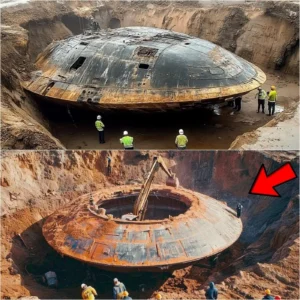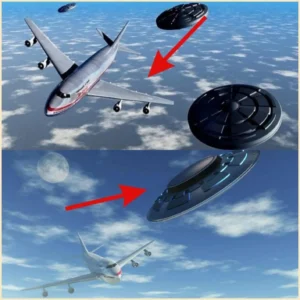Após a recente reeleição de Donald Trump, Elon Musk propôs uma de suas ideias mais surpreendentes até agora: converter agentes do IRS em pessoal de controle de fronteira. O raciocínio de Musk? “Vamos pegar agentes que atualmente estão criticando as declarações de imposto de renda e colocá-los onde eles são realmente necessários — na linha de frente.” A ideia rapidamente se tornou viral, provocando reações de todos os cantos da internet.

“Agora que temos um governo pronto para agitar as coisas, por que não começar com eficiência?” Musk tuitou. “Temos todos esses agentes do IRS vasculhando recibos — imagine se eles usassem essa atenção aos detalhes para localizar contrabandistas.”
Para Musk, essa proposta é sobre maximizar a eficiência no governo. Conhecido por combinar disciplinas em suas próprias empresas, Musk acredita que agentes federais devem “usar vários chapéus”. O IRS, ele argumenta, tem uma equipe de agentes meticulosamente treinados que já se destacam em rastrear trilhas de papel complexas — habilidades que supostamente poderiam se traduzir bem em tarefas de patrulha de fronteira.
“Essas são pessoas treinadas para seguir trilhas, farejar discrepâncias e analisar detalhes”, Musk tuitou. “O IRS e a Patrulha da Fronteira são, na verdade, mais semelhantes do que as pessoas imaginam. É hora de pensarmos fora da caixa burocrática.”
O bilionário da tecnologia elaborou em um post de acompanhamento, “Imagine um agente do IRS com um Tesla Cybertruck na fronteira. Eles poderiam perseguir sonegadores de impostos durante o dia, ficar de olho na fronteira à noite — sejamos realistas, estamos em um mundo 24/7. Por que não aproveitar ao máximo nossa força de trabalho federal?”
Não é de surpreender que a ideia de Musk tenha incendiado as mídias sociais, com alguns o elogiando como um “visionário” e outros o acusando de lançar outro “golpe publicitário”. Os apoiadores argumentam que o histórico de Musk em abalar indústrias pode ser exatamente o que o governo federal precisa.
“Elon redefiniu as viagens espaciais, os carros elétricos e a internet. Talvez seja hora de ele dar uma repaginada no governo”, tuitou um fã. “Quem melhor para trazer lógica ao caos das agências federais?”

Os críticos, no entanto, veem isso de forma diferente. “Meu contador não é um segurança, e nem um agente do IRS deveria ser”, tuitou um usuário em resposta. “Musk deveria se concentrar em foguetes e carros, não em reestruturar o governo.”
Em meio aos debates, alguns usuários começaram a criar memes imaginando agentes da Receita Federal empunhando calculadoras e binóculos, ou contadores em coletes táticos tentando decifrar faturas estrangeiras na fronteira.
Uma das maiores questões levantadas pela proposta de Musk é se o agente típico do IRS — alguém treinado para examinar registros financeiros — poderia realisticamente assumir as demandas físicas e táticas da fiscalização da fronteira.
Musk, however, appears unfazed. “Every Tesla engineer learns about mechanics, software, and customer service. Why can’t IRS agents learn border control? Cross-training is the future,” he tweeted, suggesting that IRS agents could receive fast-track training to make the transition.
To make the change smoother, Musk also proposed deploying his Cybertruck at border stations. “Give these agents Cybertrucks and Starlink for communication,” he wrote. “Imagine the efficiency of a tech-driven border patrol where agents can analyze data in real-time as they secure the area.”
Economists and policy analysts are divided on the feasibility of Musk’s plan. Some applaud the idea as a bold approach to reforming bloated government agencies. “There’s no doubt that our federal system is overly compartmentalized,” said one analyst. “Reallocating IRS agents could reduce redundancies and allow for a leaner government.”
Other experts, however, aren’t convinced. “There’s a reason we don’t ask people trained in auditing to patrol our borders,” said a policy researcher. “You wouldn’t want a chef to manage cybersecurity—different jobs require different skills.”
The IRS itself has yet to comment on Musk’s idea, but insiders say the proposal has already led to some “uneasy chatter” among employees who never imagined themselves switching from tax enforcement to border security.
Interestingly, a few conservative lawmakers have rallied behind Musk’s vision, calling it a potential solution to address both border security and government spending. “We’re not talking about ordinary times; we’re talking about a world that needs efficiency,” tweeted one senator. “If Elon Musk thinks we can solve two problems at once, I’m all ears.”
Musk’s fans have even started a petition urging Congress to consider the “Audit and Patrol” plan. The hashtag #AuditAndPatrol is trending, with supporters highlighting how Musk’s “outside-the-box” ideas have pushed industries forward. “If Musk can revolutionize cars, rockets, and broadband, why not the government?” one supporter tweeted.
IRS agents, on the other hand, aren’t taking kindly to Musk’s proposal. “I trained to find deductions, not track down border crossers,” one anonymous IRS employee told reporters. “I appreciate Musk’s ambition, but I don’t see how analyzing spreadsheets prepared me for patrolling the border.”
IRS unions are already drafting statements opposing the idea, arguing that employees who entered the agency to work with numbers shouldn’t be forced into a physically demanding role without their consent. “It’s one thing to analyze deductions and another to analyze the desert at night with night vision goggles,” said a union representative.
This proposal reflects Musk’s broader philosophy of a cross-functional, efficiency-driven government, where traditional roles are merged and federal employees work across multiple disciplines. “Government could learn from startups,” Musk tweeted. “Imagine the productivity boost if everyone wore multiple hats. It’s not just about saving money; it’s about solving real problems with real solutions.”

Some fans have speculated that Musk’s idea isn’t so far-fetched, arguing that it could reduce the need for multiple agencies and allow for a leaner, more agile federal workforce. Critics, however, counter that the proposal oversimplifies the specialized nature of federal roles.
“Government isn’t a startup, and not everyone can do two jobs at once,” tweeted one policy analyst. “It’s not just about the cost of cross-training; it’s about effectiveness.”
To sweeten the deal, Musk has offered to personally supply Cybertrucks and Starlink for the proposed IRS-border patrol force. The vehicles, which Musk claims are “virtually indestructible,” would allow agents to handle the rugged terrain of the border while equipped with real-time communication.
“Picture it: IRS agents in Cybertrucks, zooming through the desert, powered by clean energy and ready to take on whatever comes their way,” Musk tweeted, adding a wink emoji. “It’s time to modernize, people.”
The proposed combination of Cybertrucks and Starlink has already led to fan art and concept mockups of “Border Bots,” showing IRS agents in futuristic vehicles using drones and AI to monitor border activity.
Although Musk’s plan has no official backing, it has sparked a larger discussion about how federal resources could be reallocated for maximum efficiency. Some advocates are pushing for a pilot program to test whether Musk’s vision could actually work.
For Musk, it’s another day of challenging norms and sparking debate. As he tweeted in his final post on the subject, “Whether or not it happens, it’s time we rethink the purpose of government roles. In a future driven by AI, flexibility is key.”
As #AuditAndPatrol continues trending, it remains to be seen if Musk’s proposal will gain enough traction to be taken seriously—or if it’s just another example of his wild ideas that push the boundaries of what we believe government could be.






